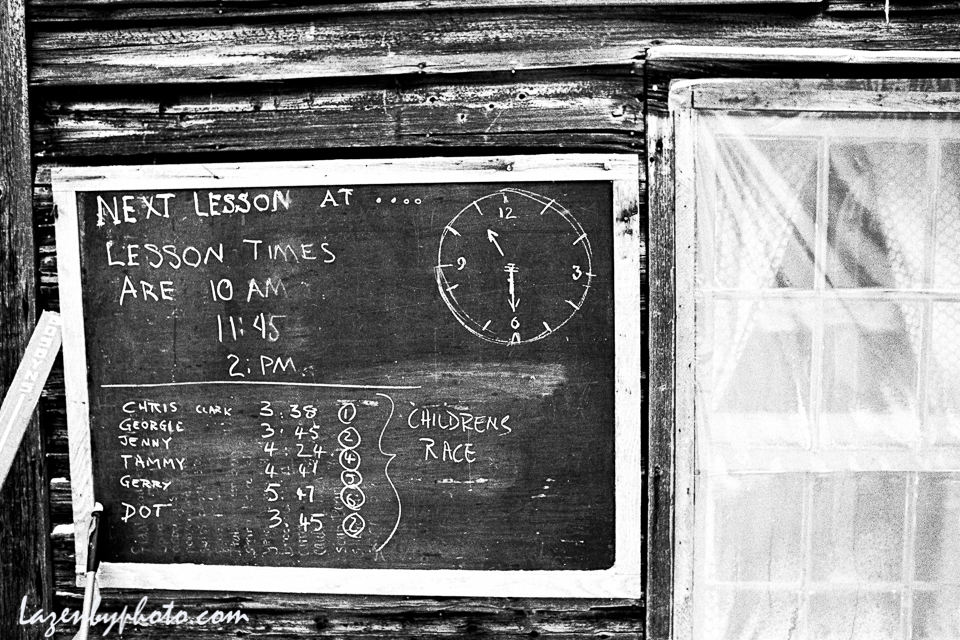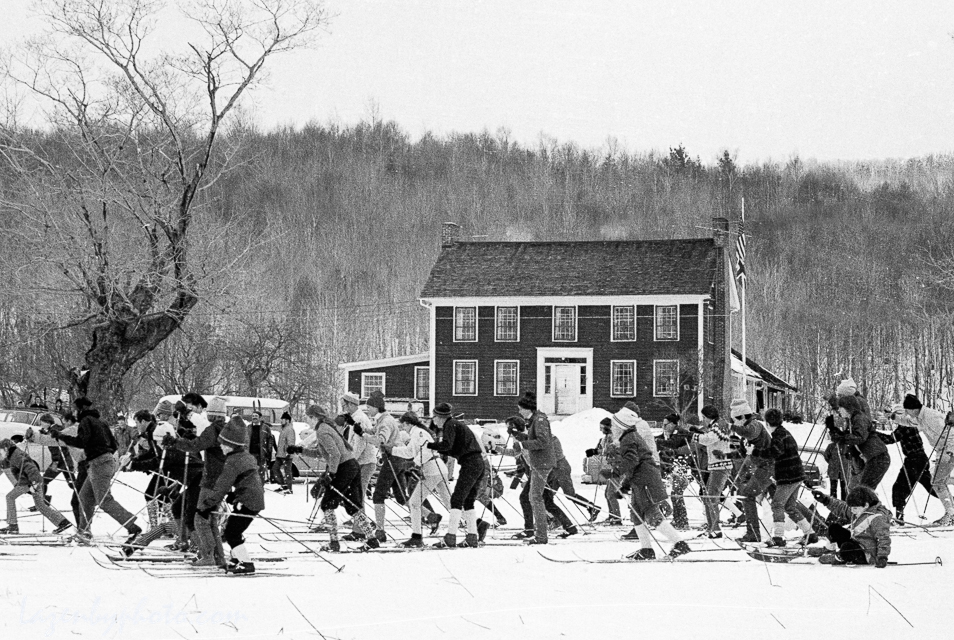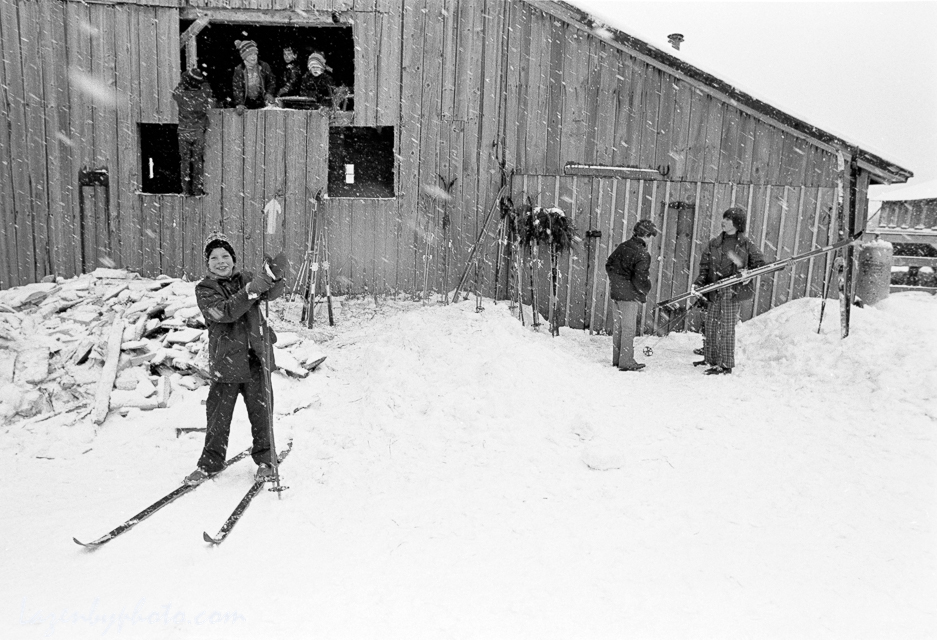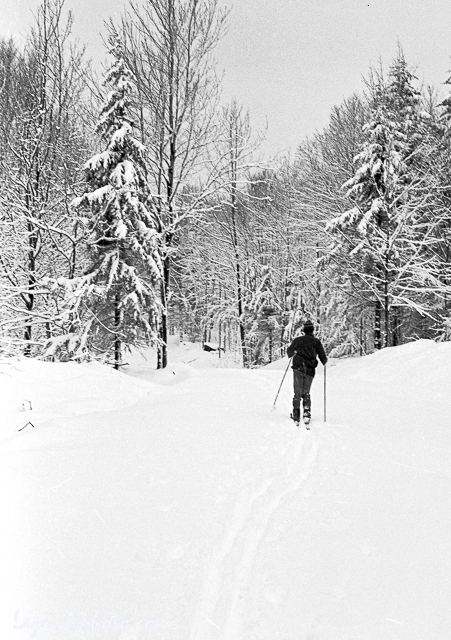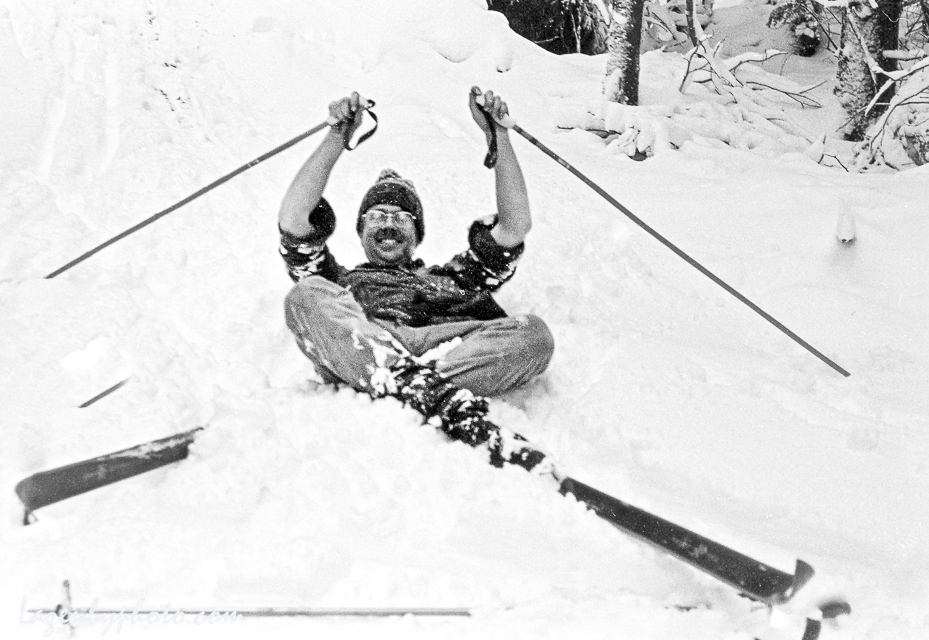
Tony Clark, the founder of Blueberry Hill Ski Touring Center and one of the founders of the 1970s nordic ski boom in Vermont, has died, in Goshen, VT, where he made it happen.
That’s Tony, above, in April of 1973. Not the best or sharpest photo ever made of him, but one that captures something of the times and a bit of Tony’s spirit. I think he had just attempted a Telemark turn.
He was a British expat, born in Wales, raised in France, who learned to ski in the Pyrenees.
On a high shelf of old farmland at the base of the Green Mountains in the central Vermont hill town of Goshen, he and his then wife, Martha, opened Blueberry Hill Inn in 1971. For guests, it was a year-round escape to the wilds of Vermont, with a dose of continental hospitality and cuisine, but it was in winter that the place came into its own.
It was the era of wooden skis and wool (knickers, hats and mittens); nylon/cotton parkas and ungroomed ski trails. Skiers waxed up their skis in the little former blacksmith shop next to the inn and headed out on the Blueberry Hill trails: around Hogback Mountain, to Sucker Brook, or all the way down to Silver Lake, possibly around Romance Mountain or north toward Middlebury College’s Breadloaf trails.
Soup simmered on the wood stove, there was the smell of woodsmoke, the feeling of being in the hills, and the bracing effect of the west wind, which always seemed to be blowing up out of the valley.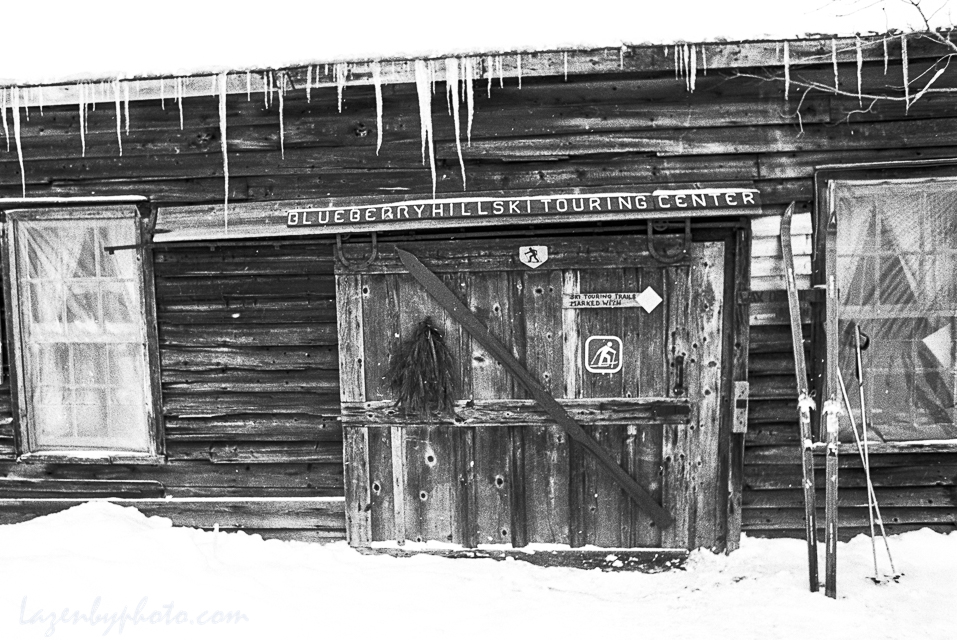
Tony had worked selling cross country skis at Wilson Sports in Rutland, but once the inn was going he sold Norwegian Bonna skis from the shop there. The skis were lithe, sturdy, laminated pieces of handmade beauty that could take you almost anywhere in the woods, even if they were a bit heavier and a lot slower than the nordic skis of today.
It was a very simple arrangement: skied-in tracks and plentiful snow; gliding through the landscape, perhaps with the redoubtable Rutland Herald reporter Tom Slayton, or 10th Mt. Division veterans Adolf Delso and George Wolcott and George’s young son, Mike — Delso with a cigar clamped in his teeth as he skied along with Lorna Whitehorne. Tours ended back at the shop for that ever-simmering soup and perhaps some wine or a beer.
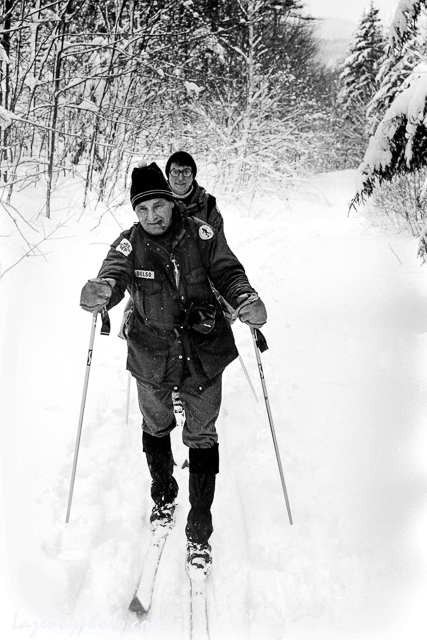
Tony didn’t participate in all these exploits as much as he facilitated them. And he came to all of this with a dry British sense of humor (and accent), a perpetual irreverence, and the ability (and desire) to completely wing it in the face of odds that might have daunted others. He was the bespectacled, bemused impresario of it all, in a rumpled, fuzzy nordic sweater.
He came up with the annual rite of spring known as the Pig Race, for which he oversaw the roasting of a large pig for the post-ski-race feast. I can taste it now. The winner’s prizes included the unfortunate pig’s nose nailed to a plaque. (A picture of the 1972 Pig Race start is below, and it reflects the time: lots of wool, leather boots, bamboo poles, no Lycra.)
Tony was there at the hatching of the American Ski Marathon, with, eventually, hundreds of skiers charging down the hills from Lincoln or Breadloaf in Ripton, over Blueberry Hill’s mountain ski trails and through its backyard en route to Brandon. It was the largest ski race in the East and the biggest nordic celebration in New England.
The Catamount Trail link and the summertime Goshen Gallop were yet to come. And so was the Moosalamoo National Recreation Area, which encompasses more than 15,000 acres, from Silver Lake to the mountain slopes, and which Tony worked hard to help establish. But in the beginning it was just lots of snow and good friends in a place that Tony and Martha created.
It’s a world that doesn’t quite exist in the same way anymore. There’s not as much snow as there once was, even on the heights of Goshen; nordic ski areas now tend toward groomed trails, the smoother the better, and the idea of an afternoon in skied-in tracks, although just as worthy a pursuit now as then, is not as popular, except for full-on backcountry skiing, with dedicated BC equipment.
But Tony was among those who planted the seeds for what cross-country skiing would become here.
He found his place in Vermont.
The mailbox at Blueberry Hill once read: “Anthony G.M. Clark.” Asked about it, Tony said that the “G.M.” stood for Green Mountain. Actually, it stood for Anthony George Morell Clark, but it might as well have been Green Mountain.
Click here for an obituary.
